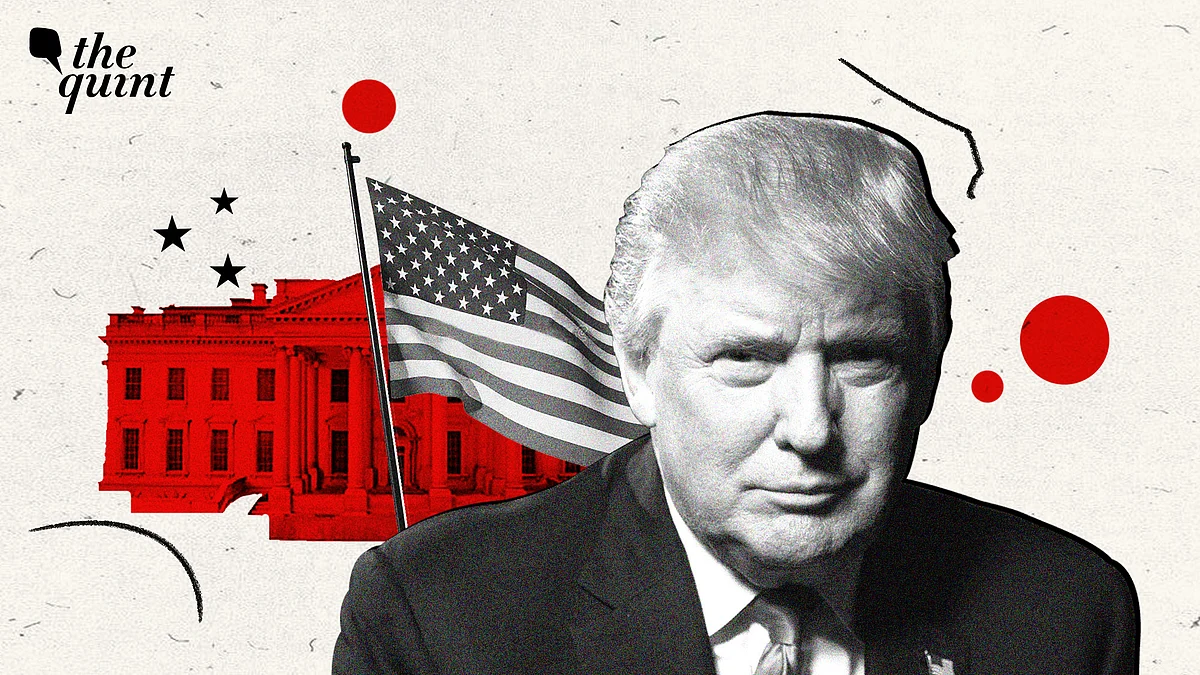
Trump’s Crackdown on Harvard Is Dangerous — But So Is the Crisis Within Campuses
Elite liberal universities have allowed themselves to perhaps become too politicised, writes Deepanshu Mohan.

advertisement
A US federal judge last week temporarily restrained the Donald Trump administration’s policy of revoking of Harvard University’s ability to enrol international students.
The conflict between the university and the Trump administration began around March-April this year when Harvard’s president publicly said the university would not comply with the demands to change its hiring, admissions policies, or academic curriculum.
The Department of Homeland Security sent a letter accusing Harvard of ensuring an “unsafe” campus environment for Jews, promoting “pro-Hamas sympathises”, and employing “racial” diversity, equity, and inclusion (DEI) policies. Sharing the letter on X, Homeland Security Secretary Kristi Noem claimed that Harvard was “also coordinating with the Chinese Communist Party on its campus.”
She added, “It is a privilege, not a right, for universities to enrol foreign students. They (Harvard) have lost their SEVP [Student and Exchange Visitor Program] certification as a result of their failure to adhere to the law. Let this serve as a warning to all universities and academic institutions across the country."
Trump’s Ideological Offensive
Over the last three months, the Trump administration in the US has threatened, investigated, and penalised dozens of leading universities. In a few cases, it has demanded changes to curriculum, university policies, and hiring or admissions policies.
That includes freezing as much as $4 billion in federal grants and contracts (mostly tied to scientific and medical research), threatening to revoke Harvard’s tax-exempt status, and opening at least eight investigations into the university by six government agencies. These include a fraud probe by the Department of Justice and an investigation of Harvard’s hiring practices by the Equal Employment Opportunity Commission.
This full-spectrum assault appears to be part of a broader, ideologically driven campaign against elite liberal institutions in the US—a signature of Trump’s politics.
As Harvard professor Maya Sen notes:
Crises in Higher Education
Over the last few years, elite liberal universities, particularly in the US and in social sciences, have allowed themselves to perhaps become too extensively politicised. This has triggered an appeal for pause—and a need of serious academic reforms perhaps at all levels, which has been long-pending.
There are three immediate crises that come to my mind that universities in higher education face across the board.
A growing lack of motivation to attend classes regularly or be able to speak freely inside classrooms, which inhibits their views, thoughts, and creative expression.
A trend of academic instructors or professors teaching from a place of political self-identification and less from a position of scholarship, which contributes to student polarisation.
A crisis of accountability that administrators face on their own, where decision-making has become increasingly less deliberative and more authoritative, over time. The opaqueness in which committees function or communicate decisions contribute to a crisis of accountability that institutions face.
These crises collectively circumscribe values of creativity, autonomy, and a commitment to truth in context to higher education institutions—independent of their elite or liberal status—to practice or preach their own principles in most cases. This crisis is also not unique or one without precedent in history.
A Warning From History
When universities were historically run as religious institutions, there was an imposition of religious orthodoxy on faculty and students that contributed to stifling conformism.
Declarations of commitment to religious belief—guided not by reason but orthodoxy—proved counterproductive to science, discovery, and truth-seeking. Oxford and Cambridge, from their founding until almost the 19th century, faced such issues. Decisions on faculty hiring, student admissions, and graduation were often aligned with declarations of faith, embedded in their institutional culture and administration.
A grave extent of excessive politicisation and stifling conformism at campuses or inside classrooms endanger a similar threat, which needs to disincentivise as much as possible. Students need to be able to ask questions or challenge professors the way they want—no matter the wrong they might be implying sometimes by speech—because having the freedom to do so is vital.
When political ideology, whether from the academic left or right, takes precedence over a commitment to scholarly truth, a gradual yet inevitable dilution of embedded academic standards and rigour may follow.
Fight Back, But Look Within
The Trump administration's combative and coercive attitude, demonstrated by its draconian threats to seize oversight of academic functions on Harvard, is surely counterproductive, but may also be seen as part of a radical response to the nature of structural crises brewing within elite institutions, that have polarised people against them.
Hopefully, this moment can start, at least within these campuses, a space for internalising a deeper process of critical scrutiny, while taking the moment to fight an unjust state weaponised administrative onslaught.
A Socratic-critical dialogue-based mode of instructive learning, administrative functionality, and student engagement is fundamentally essential in the core practice of educative learning imparted both within classrooms and across campuses. We, as academics, need to protect and safeguard this impartial approach as a voice to advocating for critical reason and dialogue in scholarship, not beliefs.
(Deepanshu Mohan is a Professor of Economics, Dean, IDEAS, Office of Inter-Disciplinary Studies, and Director of Centre for New Economics Studies (CNES), OP Jindal Global University. This is an opinion piece, and the views expressed are the author’s own. The Quint neither endorses nor is responsible for them.)
- Access to all paywalled content on site
- Ad-free experience across The Quint
- Early previews of our Special Projects
Published: undefined